If you are trying to add more high-quality protein to your daily diet, but are feeling a bit overwhelmed by all the protein powder options out there, you are not alone. There are so many more choices than in the past, when it was generally just whey or soy. More options is a good thing, but can lead to a bit of choice paralysis. We’ll try to break that down for you. For the sake of this blog, we’ll stick to only the plant-based options, but if you are ok with dairy, then know that whey protein is also an alternative for you.
Plant-based Protein Powder Sources
Vegan protein powder is typically sourced from legumes, seeds and grains. It can be found as a blend of multiple sources of protein, or as a single source. One advantage of plant-based protein over dairy-based is that plant sources usually contain fibre, which makes you feel more satiated, and also aids digestion, and supports cholesterol health.
There are 7 common sources or types of plant protein powders (though new ones are coming online more and more):
How do you choose?
This is a personal decision, based on your own wellness goals. My personal perspective is that the plant protein that is best for you, is the one you will actually use. My criteria for me (and for formulating Niyama’s Plant Protein) are: Taste & Texture, Protein content and Complete Amino Profile, and Digestibility.
If you don’t like the taste or texture, you will not enjoy using it. Pre-Niyama, I’ve personally purchased and NOT finished many, many plant proteins because I started to dread them, so I just stopped using them. It was bad for my wallet, and didn’t help me meet my wellness goals.
A complete plant protein is one that delivers a full amino acid profile, with all 9 essential aminos (meaning you can’t make them yourself and need to consume them in the diet).
And digestibility just means your body can absorb it easily with no unpleasant gas or bloating, or worse.
-
Hemp Protein
Hemp protein comes from the seeds of the hemp plant and has zero THC. A quarter cup of plain hemp protein powder has approximately 12 g of protein and 108 calories. Hemp protein is low in the amino acid lysine, so it’s not a complete protein on its own. It is a unique in containing plant-sourced essential fatty acids (Omega 3s) in addition to protein and fibre. It has a faint, nutty flavour that is delicious in smoothies, but may not be as enjoyable in water or plant milk alone, and works best in a blender smoothie, as it doesn’t mix terribly well.

-
Pea Protein
Pea protein comes from yellow split peas, so it’s legume based, not like fresh green peas. A quarter cup delivers about 20 grams of protein in 100 calories. It is a complete protein, rich in the essential branched chain aminos (BCAAs), containing almost as much leucine and lysine as whey, but a little low in methionine. This is Niyama's favourite option. It's excellent for people with food sensitivities or allergies, or anyone with a weak digestive system. Pea protein is 80% protein and very easily digested by the body. Another big benefit of pea protein is that it's much lighter and less chalky than the other two options, so you're more likely to feel energized rather than bloated afterwards. But, key here, is ensuring any pea protein you consume is organically grown; yellow split peas are one of the most highly sprayed crops. glyphosate, a pesticide also known as Round-Up, can leave residue in non-organic yellow pea protein, which can have unpleasant side effects on the digestive system, such as gas, bloating and indigestion. It has a neutral taste and is highly soluble, making it ideal to mix into a smoothie or on its own with water.
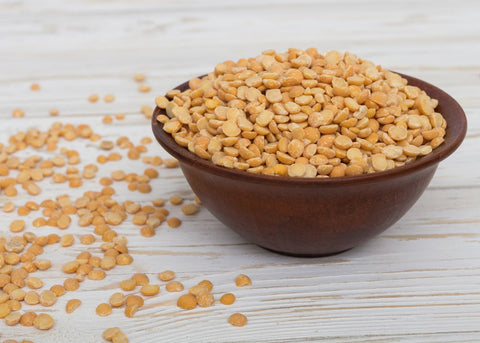
-
Soy Protein
Soy protein powder is a complete protein, containing all the aminos. A quarter-cup of soy protein isolate powder contains 95 calories and 22 grams of protein, depending on the brand.
Soy protein has declined in popularity in recent years, partly due to soy allergies, and partly because most soy is genetically modified. However, there are a few brands of organic non-GMO soy protein powder available. Processed soy is a genetically modified crop that is heavily sprayed with pesticides, a common allergen and contains unhealthy fats and compounds. It should not be confused with fermented, traditional soy, in whole food forms such as miso and tempeh, which offer many health benefits.
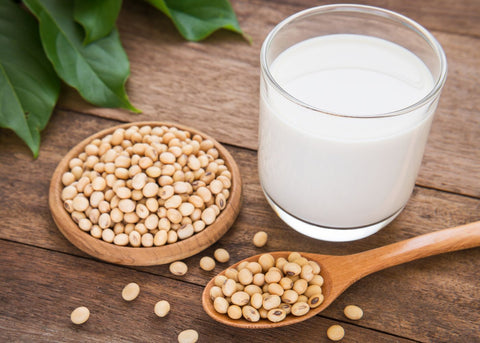
-
Brown Rice Protein
Surprisingly, brown rice can be a great source of protein once you separate out the carbohydrates. Brown rice protein is a good hypoallergenic option for people with food sensitivities or allergies. A quarter-cup of unflavored brown rice protein powder provides 107 calories and 22 g of protein, again depending on the brand. It’s low in the essential amino acid lysine but a good source of BCAAs to support muscle growth and repair. Unfortunately, brown rice protein tends to be the grittiest or chalkiest source from a texture perspective, and can be contaminated with arsenic/heavy metals.
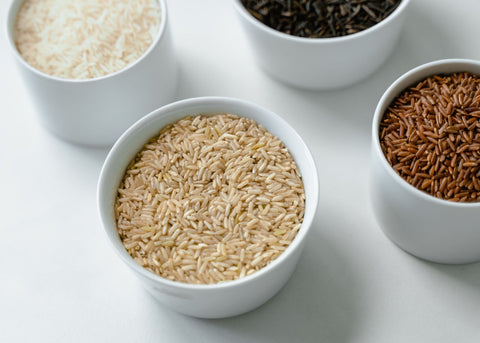
-
Pumpkin Seed Protein
In their whole form, pumpkin seeds are relatively high in protein and healthy fat. When made into powder, most of the fat is removed, leaving the protein. A quarter-cup of unflavored pumpkin seed protein powder gets you 103 calories and 18 grams of protein, depending on the brand. Low in the essential amino acids threonine and lysine, it’s not a complete protein but is very nutritious, supplying high amounts of magnesium, zinc, iron and other minerals. The taste is pretty distinct though, so it is best used in blender smoothies or baking.
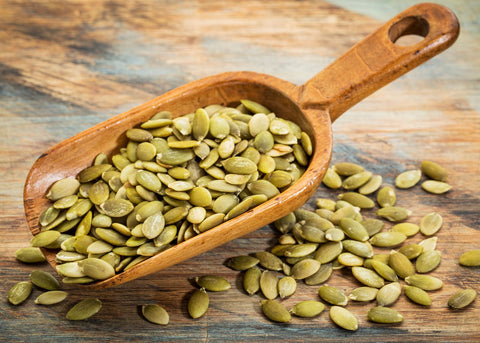
-
Chia Protein
You probably add chia seeds to smoothies or granola, or make chia pudding now and then, but it can also be made into protein powder. A quarter cup will give you 10 g of protein and about 50 calories. It’s low in lysine, so not quite a complete protein, but is amazingly high in fibre, vitamins and minerals. It doesn’t taste wonderful when ground and powdered on its own, but it can be a nice addition to blend.
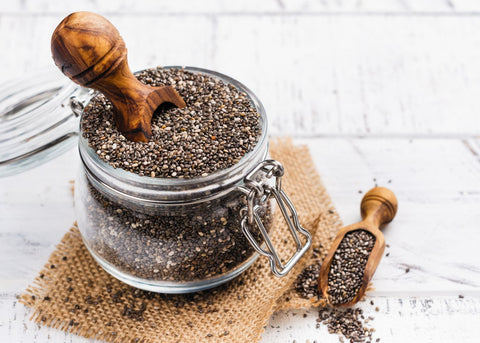
-
Blends
One of the advantages of blending plant proteins is that it can provide optimal levels of all essential amino acids in a single product.
For example, pea protein may be combined with rice protein. The pea protein supplies lysine, in which rice protein is low while rice protein supplies methionine, in which pea protein is lower.
Other Ingredients To Consider
While considering the source of protein is important, it's also crucial to look at the other ingredients or label information. Below are some of the most important things to keep an eye out for:
- Sweeteners – avoid anything with artificial sweeteners or excessive sugar (yes, even if it's organic cane sugar!) Ideally, there should be no sweetener or a natural one with no impact on blood sugar, such as stevia or monk fruit. Also avoid sugar alcohols like xylitol and erythritol as they can cause digestive disturbances for a lot of people.
- Artificial flavours and colours – it's not necessary for your protein to taste like red velvet cake or cookies and cream, stick to the basics like vanilla and chocolate, which are easier to get from a natural source.
- Organic– if you're going to consume a protein shake for your wellness, try not to consume pesticides along with it!
- Added nutrition – while this isn't mandatory, it's useful to get a protein powder that also serves as a bit of a multivitamin! Many companies add in vitamins in minerals or additional superfoods and greens. Niyama’s Plant Proteins contain a broad spectrum of micronutrients along with 20 grams of pea protein.
Niyama's Clean Plant Protein
In the end, i went with the best taste/texture, and the most complete protein option, that would be easy to digest and enjoyable to use. Our plant protein is sourced from 100% organic pea protein isolate, with added vitamins. It's a delicious vegan protein powder with zero sugar, and no stevia. We use monk fruit as our sweetener to gently sweeten with no aftertaste. In terms of texture and taste, i can honestly say i believe it to be the best in Canada for plant protein. With 100 calories and 20 g of protein per scoop, this organic protein powder is versatile and can be used in smoothies, baking, raw energy balls, and is even good enough to drink alone in water. And aas always, no artificial colours, flavours or preservatives.
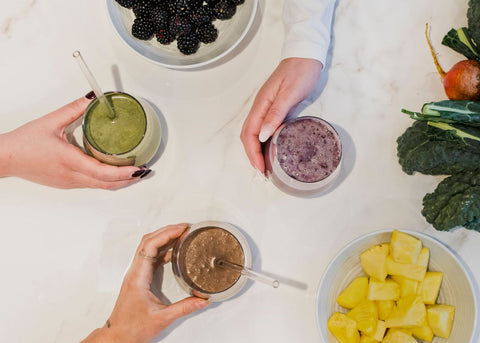
Sources and Further Reading



Leave a comment: